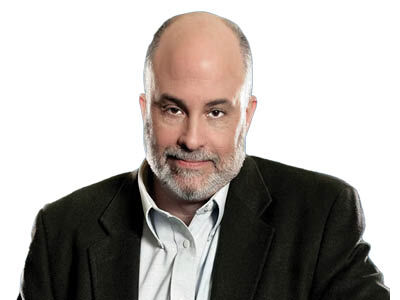Amateur hour in Congress: How political newcomers fuel gridlock and government shutdowns
News > Politics & Government News

Audio By Carbonatix
8:18 AM on Monday, November 3
By Rachel Porter,Jeff Harden
(The Conversation is an independent and nonprofit source of news, analysis and commentary from academic experts.)
Rachel Porter, University of Notre Dame and Jeff Harden, University of Notre Dame
(THE CONVERSATION) The ongoing government shutdown shows how hard it has become for Congress to do its most basic job: keeping the government running. Ending the stalemate will require lawmakers from both parties to strike a deal – a reminder that legislative progress depends on bipartisanship.
Politicians often call for greater cooperation across party lines, and research shows that bills rarely become law without it. Bipartisan deal-making is also popular with the public. Recent polls demonstrate that Americans are twice as likely to favor leaders who compromise to get things done over those who stick to their beliefs and accomplish less.
Yet partisan gridlock continues to stall policymaking.
The public’s growing frustration with “politics as usual” has led more political newcomers to run for and win office since 2016.
These “amateur” politicians, with no prior experience in elected office, present themselves as problem-solvers rather than politicians. Many come from outside government entirely – including business owners, military veterans and schoolteachers. Amateurs’ real-world backgrounds are often seen as assets by voters, donors and even politicians themselves – qualities thought to make them more effective in Congress.
As scholars oflegislative politics, we wanted to interrogate that claim. And our new study reaches a different conclusion: Electing amateurs reduces bipartisan cooperation in Congress.
We find that, once in office, political newcomers are less likely than career politicians to work across the aisle. The very outsiders many voters hope will “fix” Congress contribute to the partisan divisions that keep it from functioning.
Amateurs are more likely to view bipartisanship as a concession rather than a tool for advancing policy.
What the data shows
We analyzed over 2.2 million policymaking actions from 1980 to 2022 to assess how often members of the U.S. House of Representatives worked across the aisle to co-author bills. Legislation developed through bipartisan collaboration is much more likely to become law. We then compared the collaboration patterns of first-term amateurs – legislators who have never held office and were just elected to Congress – against the collaboration patterns of established incumbents.
The difference was clear. Over the past four decades, amateur lawmakers worked across party lines far less often than incumbent lawmakers, both when developing their own legislation and when lending support to other legislators’ proposals.
This finding is not simply a “freshman effect,” observed among all new members of Congress who are still learning its norms and procedures.
First-term representatives who entered Congress with prior elected experience in state or local office engaged in bipartisan cooperation about as frequently as longer-serving incumbents. This suggests that what matters for bipartisan engagement is prior experience in elected office, not a lack of experience in Congress itself.
The impact on democracy
Amateur lawmakers are about 10–20 percentage points less likely to engage in bipartisanship during their first term than experienced officeholders.
To put it in perspective, the size of the amateur effect is roughly on par with the collapse in bipartisan relationships that followed the Jan. 6, 2021, attack on the U.S. Capitol. After some Republican members refused to certify the 2020 presidential election results, Democrats largely stopped working with them in that Congress – a decline in collaboration comparable in scale to what we observe among amateurs.
These effects are likely to continue, with amateurs making up nearly half of all first-term lawmakers in recent years compared to decades past. Notable amateurs elected to Congress include Alexandria Ocasio-Cortez, Lauren Boebert and Marjorie Taylor-Greene. As new cohorts of amateurs enter office each election cycle, this bipartisanship problem will persist.
Learning to value bipartisanship
Our findings show that amateur lawmakers’ approach to bipartisanship evolves as they gain office-holding experience. By their third term in Congress – about six years after first taking office – the gap in bipartisan behavior between amateurs and experienced legislators largely disappears.
Amateur lawmakers often bring impressive credentials to office – many are skilled professionals, public figures or highly educated.
However, we show that these backgrounds do not necessarily prepare amateurs for the demands of governing. Experience holding state or local office exposes politicians to the practical realities of policymaking. Lacking that experience, amateurs are more likely to view bipartisanship as giving up on their principles rather than a method for serving the public interest. We find that this tendency diminishes only as newcomers gain firsthand experience in the legislative process.
A global trend with familiar consequences
The U.S. is not alone in this trend toward amateurism. Around the world, political newcomers have surged to power amid frustration with traditional elites.
In Europe, Italy’s Five Star Movement in 2013 and France’s En Marche! movement in 2017 were led by and composed of amateur politicians who framed themselves as anti-establishment outsiders.
In each case, widespread outsider success in the legislature delivered disruption – but not necessarily effective governance. These groups often start with promises of pragmatic reform but struggle once in office.
Looking toward the midterms
Heading into 2026, many Americans continue to express deep dissatisfaction with their party’s establishment. Public approval of Congress is near historic lows, and polling shows that many voters believe professional politicians are self-interested and out of touch.
Amateur politicians are once again emerging in response to this discontent, positioning themselves as outsiders who can bring change to Washington. Yet, as our research shows, these newcomers will undervalue the bipartisan relationships needed to govern effectively.
As voters look for change, the challenge will be to balance the desire for fresh perspectives with the experience required to sustain cooperation – and to keep Congress, and democracy, working.
This article is republished from The Conversation under a Creative Commons license. Read the original article here: https://theconversation.com/amateur-hour-in-congress-how-political-newcomers-fuel-gridlock-and-government-shutdowns-268133.






